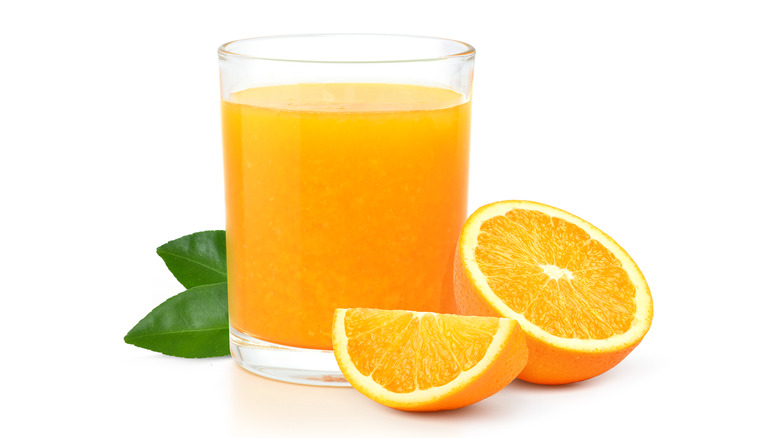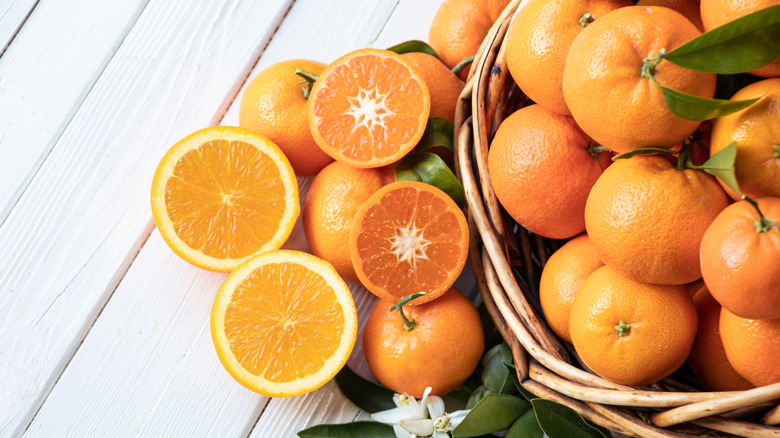Why Does Fresh Orange Juice Taste Different From Store Orange Juice?
For years, you may have heard that fresh fruit juice is always better than juice from concentrate. In its simplest terms, "from concentrate" means that the water from the fruit is removed when the juice is extracted, then re-added again when it's ready to be packaged, per Science Focus. On the contrary, fresh juice doesn't go through that water removal process and is instead sold as-is. It might be easier to toss a carton of orange juice into your grocery basket compared to squeezing your own, but something to note is that even the best orange juice brands labeled "not from concentrate" are still not the same as fresh orange juice.
If you have ever sat down for breakfast at a restaurant, you've likely noticed orange juice on the menu. But have the words "fresh-squeezed" ever caught your eye? Usually, if a restaurant is offering that type of OJ, it's a bit pricier than the store-bought stuff. Most people are willing to pay a premium because we've heard that fresh is always better — but what exactly is the difference between a fresh-squeezed glass of juice versus other versions?
Fresh orange doesn't have added chemicals
It turns out that consuming juice "not from concentrate" doesn't mean it's fresh — and you might notice that in its taste. There is one main reason why freshly squeezed OJ tastes different from the store-bought variety, which you might want to consider when pouring a glass of Tropicana Orange Juice or any other brand.
According to Harding's Friendly Markets, a big reason for the difference in taste is due to chemicals. Although the ingredients label suggests it's pure orange juice, Harding's reports that there are certain chemicals in the juice that don't need to be added to the ingredients list. The purpose of the chemicals is to keep every carton of juice tasting the same, and since the chemicals technically come from oranges, the juice companies aren't lying to consumers by not adding them to the ingredients list. However, they might result in a noticeable taste difference.
We couldn't find any evidence to suggest the chemicals are dangerous to your body in any way, but it's always important to know what you're consuming. According to WNYC, oranges contain as many as 600 chemicals, though the one most highlighted for flavor purposes is ethyl butyrate.

